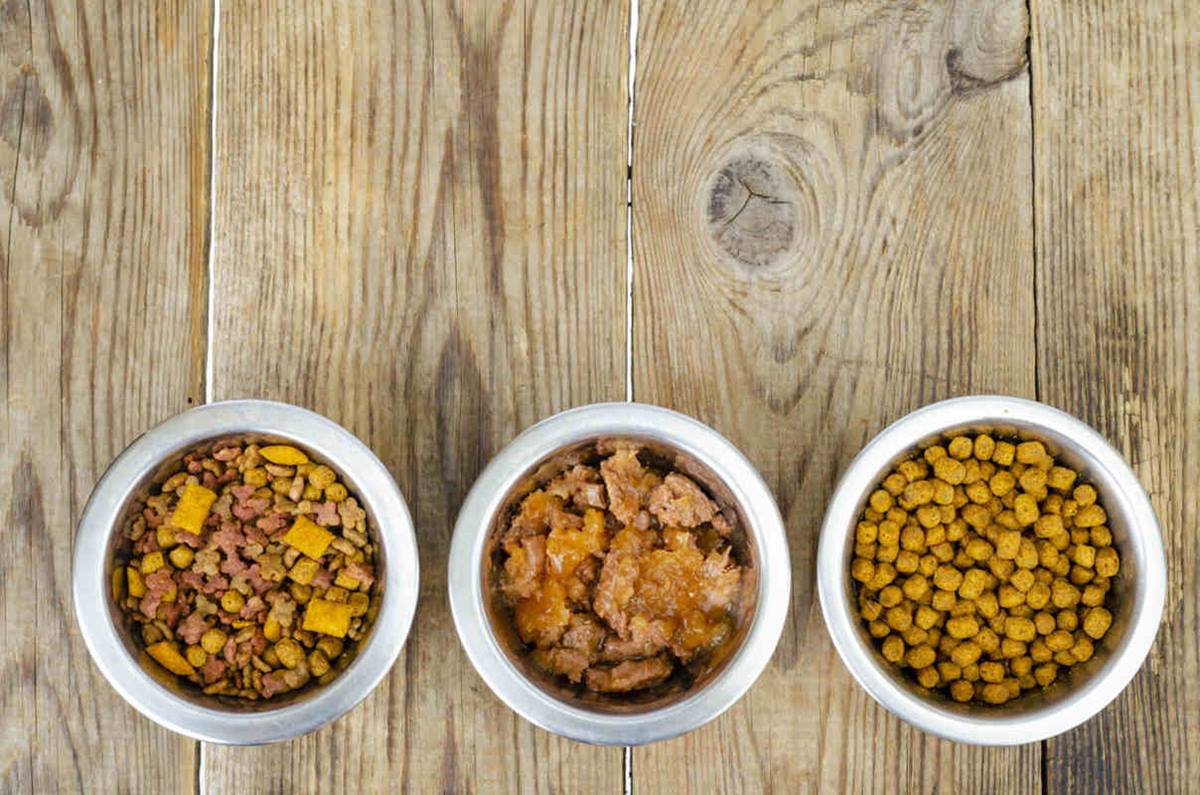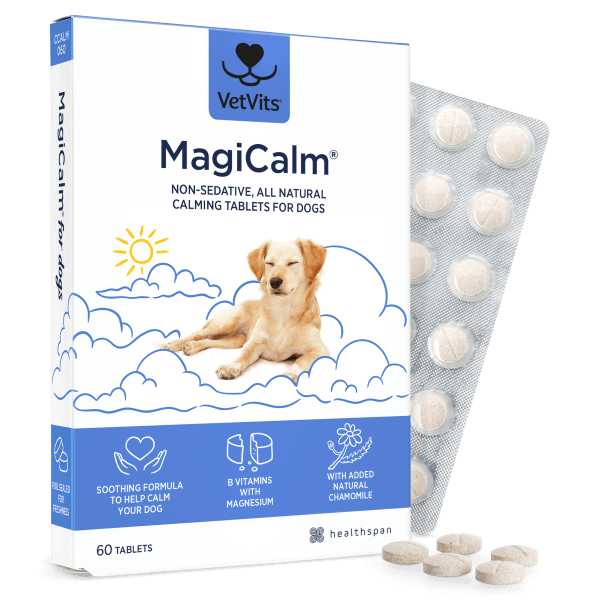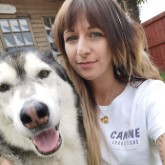Anxiety in dogs is more common than you might think, but the role of diet and nutrition is often overlooked, says expert Jodie Woodward.
The signs of anxiety in dogs can be so subtle that many of us may miss them, or not recognise them as a sign of stress or discomfort. They can be as normal as a yawn or a shake-off, or as obvious as a bark or backing away. Anxiety in dogs can also be caused by many different things, such as negative previous experiences, loud noises and poor self-control, as well as poor diet.
Dog breeds and anxiety
Working breeds such as Cocker Spaniels, English Springer Spaniels, working Labradors and Border Collies – in particular those that are in a domestic setting – are usually more at risk of developing anxiety due to their highly-strung nature and ease of becoming hyper-aroused (over-alert).
The level of vigilance in an anxious dog will often interfere with training, focus, social interaction and relationships with both humans and other dogs, leading to them being labelled a 'problem dog' – or in more severe cases, an 'aggressive dog' when, actually, it is purely the dog losing control of their thoughts and permanently living within the 'fight or flight' response.
Diet and anxiety in dogs
As in humans, when it comes to diet, you get out what you put in. A dog fed on a high-energy, low-protein diet is likely to have phases of uncontrollable, unfocused energy and always seem hungry, whereas a dog that is fed a protein-rich diet that is low in fat is more likely to be focused, satisfied and have a slower-released, more controlled energy.
Equally, a dog lacking in certain vitamins, minerals and nutrients may also show a higher susceptibility to anxiety. One of the things we can do is to look at certain ingredients that aid in producing calming messages within the dog's brain and act upon the nervous system, including B-vitamins, L-tryptophan, L-tyrosine and magnesium.

A dog lacking in certain vitamins, minerals and nutrients may show a higher susceptibility to anxiety.
Nutrients in detail
B-vitamins and magnesium
B-vitamins such as B6 help contribute to regulating serotonin (the happy hormone). B-vitamins allow the body and mind to better cope with stress, whilst magnesium acts on the muscles, easing tension and inducing a calmer, more relaxed dog. Both these ingredients deplete with stress, so it is important (especially if your dog does become stressed or anxious easily) to keep this topped up.
L-tyrosine
The amino acids L-tyrosine and L-tryptophan are used in many calming products due to their ability to aid the production of calming hormones such as dopamine and norepinephrine, which is associated with the 'fight or flight' response and how the brain (in particular the amygdala) deals with stress and anxiety.
Low norepinephrine levels in humans have been associated with anxiety and depression disorders.1 L-Tyrosine also allows for better transport of L-tryptophan across the blood-brain barrier.
L-tryptophan
L-tryptophan has been proven to influence and improve behaviours associated with stress, anxiety, fear and aggression, as it aids the production of serotonin.2 Studies showed that those dogs with a higher serotonin and L-tryptophan level showed less or no signs of anxiety or fear-related aggression.3

MagiCalm
For naturally calmer and less anxious dogs
- Magnesium to lower muscle tension, B vitamins for psychological wellbeing and relaxing chamomile
- Beef flavour enhanced with brewer's yeast
- Can help to calm your dog in stressful situations







